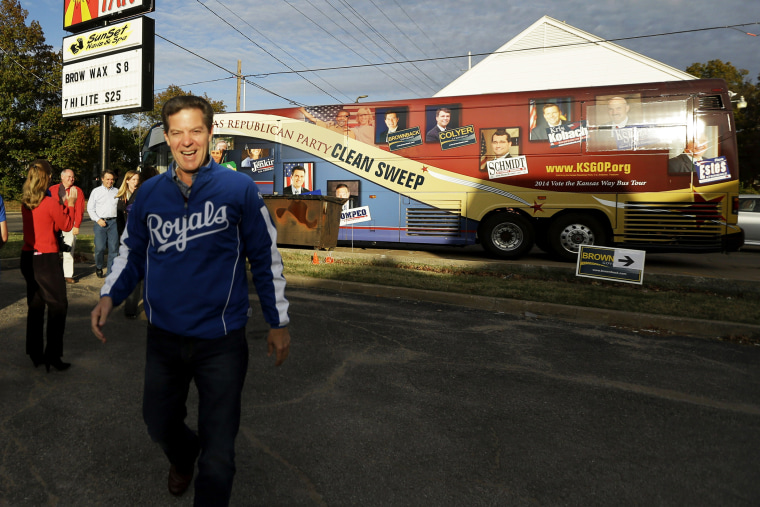[A recently approved state law] capped ATM withdrawals with welfare debit cards at $25 per day -- an unprecedented restriction. It also banned the cards from being used at a long list of establishments, including swimming pools, fortune tellers and cruise ships. Gov. Sam Brownback (R) signed the law in April. Now, prompted by concerns that the cash withdrawal limit went too far and would jeopardize the state's compliance with federal rules, Kansas lawmakers are revisiting that provision. An amendment that cleared the Kansas State Legislature on Saturday would give the state's Department for Children and Family Services leeway to loosen the limit or get rid of it altogether.
The legislature placed a daily cap of $25 on cash withdrawals beginning July 1, which will force beneficiaries to make more frequent trips to the ATM to withdraw money from the debit cards used to pay public assistance benefits. Since there's a fee for every withdrawal, the limit means that some families will get substantially less money. It's hard to overstate the significance of this action. Many households without enough money to maintain a minimum balance in a conventional checking account will pay their rent and their utility bills in cash. A single mother with two children seeking to withdraw just $200 in cash could incur $30 or more in fees, which is a big chunk of the roughly $400 such a family would receive under the program in Kansas.
